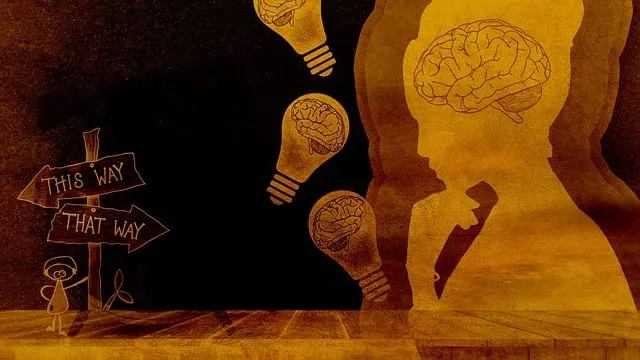The media significantly shapes public perceptions of mental health, with accurate and compassionate representations reducing stigma, encouraging help-seeking behaviors, and enabling early interventions. Organizations like Kaiser in Colorado Springs, which offers mental health services, are crucial in combating negative stereotypes. Strategies to improve media portrayal include diverse storytelling, risk assessment tools for professionals, and promoting open conversations about mental wellness. By integrating mental health care into primary services and prioritizing cultural competency, Kaiser helps destigmatize mental illness in Colorado Springs, improving access to resources and support.
Mental illness representation in media significantly impacts public understanding and awareness. This article delves into the challenge of stereotyping and misconceptions perpetuated by popular culture, exploring their effects on societal perceptions. We examine the role of organizations like Kaiser in providing mental health services in Colorado Springs, offering a unique perspective. Furthermore, it provides effective strategies to promote accurate representation, challenging media norms and fostering a more empathetic society. Discover how these initiatives contribute to improved mental health support.
- Understanding the Impact of Media Portrayal on Mental Health Awareness
- Identifying Stereotypes and Misconceptions in Popular Culture Depictions
- Exploring Kaiser's Approach to Mental Health Services in Colorado Springs
- Effective Strategies for Promoting Accurate Mental Illness Representation in Media
Understanding the Impact of Media Portrayal on Mental Health Awareness

The media plays a pivotal role in shaping public perceptions about mental health. Accurate and compassionate representation can significantly influence how society understands and supports individuals struggling with various psychological conditions. However, years of stereotypical and inadequate portrayals have contributed to stigma and misinformed assumptions. This has profound implications for those seeking help, often leading to delayed care or avoidance altogether. For instance, in Colorado Springs, where Kaiser offers mental health services, a positive media narrative could encourage residents to initiate conversations about their well-being and pursue treatment without fear of judgment.
Understanding the impact of media is crucial in the ongoing mental health policy analysis and advocacy efforts. By promoting accurate representation, we can foster environments that normalize coping skills development and stress management workshops within organizations. This shift has the potential to reduce the burden on mental health professionals and encourage early intervention, ultimately improving outcomes for those dealing with mental illness.
Identifying Stereotypes and Misconceptions in Popular Culture Depictions

In popular culture, mental illness is often depicted through harmful stereotypes and misconceptions, perpetuating negative perceptions. These representations can range from simplistic character arcs to exaggerated, sensationalized storylines. For instance, a common trope is to portray individuals with severe mental illnesses as unpredictable, violent, or completely disabled, which not only oversimplifies complex conditions but also contributes to the stigmatization of those seeking help. This is especially concerning when considering that nearly 1 in 5 adults in the U.S. live with a mental health condition (National Alliance on Mental Illness, 2022). Organizations like Kaiser in Colorado Springs offer essential services, including mental health support, to address these challenges and promote better understanding.
By examining media portrayals, we can identify harmful narratives that influence public opinion. Encouragingly, there’s a growing movement towards more nuanced and accurate representations. Promoting self-awareness exercises and emotional intelligence can help content creators challenge stereotypes. Additionally, implementing risk management planning for mental health professionals in the media industry ensures responsible storytelling. These efforts are crucial steps towards destigmatization, fostering an environment where individuals with mental illnesses are supported rather than judged.
Exploring Kaiser's Approach to Mental Health Services in Colorado Springs

In Colorado Springs, Kaiser Permanente stands out as a healthcare organization committed to addressing mental illness with comprehensive services. They offer a wide range of support tailored to individual needs, focusing on both treatment and prevention strategies. By integrating mental health care into primary medical services, Kaiser aims to normalize conversations around mental wellness and reduce stigma. Their approach emphasizes the importance of early intervention, ensuring that residents of Colorado Springs have access to resources for mood management and inner strength development.
Furthermore, Kaiser prioritizes healthcare provider cultural competency training to ensure sensitive and effective treatment. This includes educating staff on various aspects of mental health, including diverse cultural perspectives, to foster inclusive care environments. Such initiatives reflect a holistic understanding of mental illness, acknowledging that effective treatment requires not just medical expertise but also cultural sensitivity and empathy.
Effective Strategies for Promoting Accurate Mental Illness Representation in Media

Media plays a significant role in shaping public perception about mental health issues. To address the challenge of inaccurate representation, several effective strategies can be implemented. Firstly, promoting diversity and consultation among writers and producers can ensure stories reflect the real-life experiences of individuals with various mental illnesses. This involves collaborating with mental health experts, people with lived experiences, and cultural advisors to enhance authenticity.
Additionally, media outlets should prioritize accurate portrayal by employing risk assessment tools specifically designed for mental health professionals to review content. Such assessments help identify potentially harmful stereotypes or misconceptions. Moreover, integrating mental illness stigma reduction efforts into production processes can foster empathy and understanding among audiences. Encouraging open conversations about mental health and providing resources for further learning can also contribute to a more supportive societal atmosphere. This, in turn, can boost the confidence of individuals seeking support, including those considering Kaiser’s mental health services in Colorado Springs.
Media plays a pivotal role in shaping societal perceptions of mental illness. By identifying and challenging stereotypes, we can foster a more nuanced understanding of mental health. The case study of Kaiser’s services in Colorado Springs demonstrates a promising approach to improving access and representation. Effective strategies, such as consultation with mental health experts and diverse storytelling, are essential tools to ensure media accurately portrays the experiences of those living with mental illness. Encouraging accurate representation can lead to increased empathy, reduced stigma, and better support for individuals seeking mental health services, including those offered by Kaiser in Colorado Springs.






